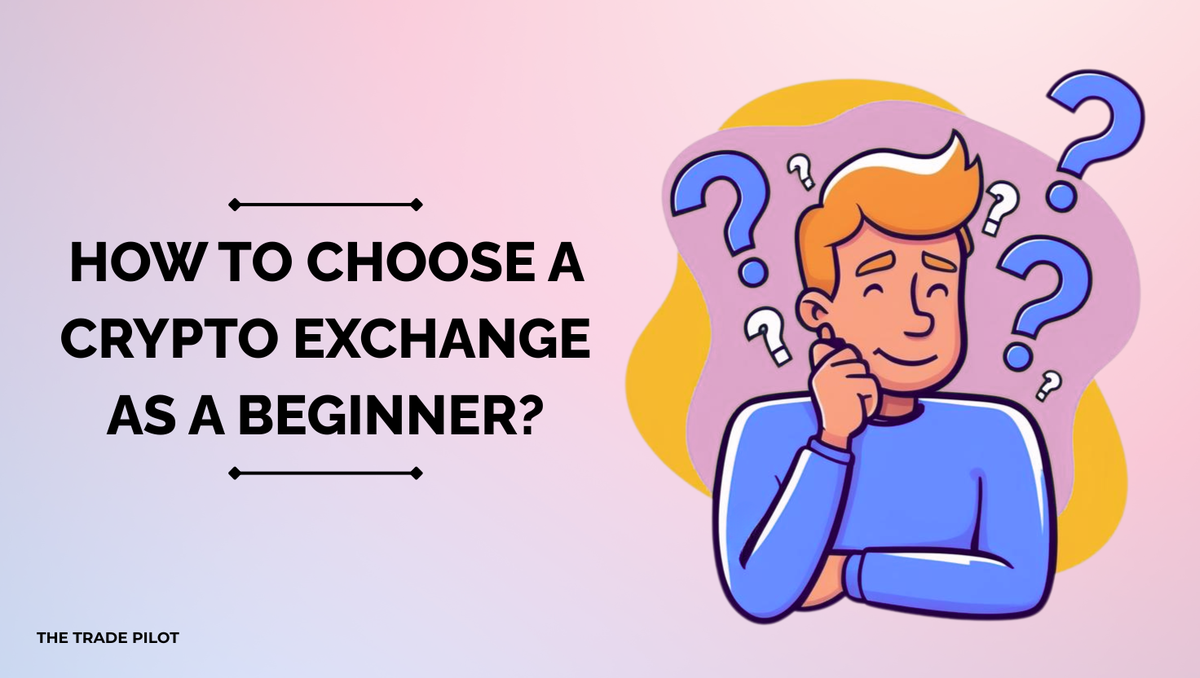Starting your crypto journey? Here's how to pick the right exchange—safely and smartly.
Getting started with cryptocurrency can be exciting, but also a bit overwhelming—especially when it comes to choosing a crypto exchange. With hundreds of platforms out there, how do you know which one is right for you?
In this guide, we'll break down the key factors you should consider when selecting a crypto exchange for the first time. Whether you're looking to invest long-term or start active trading with bots like The Trade Pilot, choosing the right platform is the foundation of your crypto experience.
What Is a Crypto Exchange?
A cryptocurrency exchange is a digital platform where you can buy, sell, and trade cryptocurrencies like Bitcoin, Ethereum, and thousands of others. Some exchanges are simple and beginner-friendly, while others offer advanced trading tools and features.
There are two main types of exchanges:
- Centralized Exchanges (CEX): Operated by a company. These are user-friendly, regulated, and widely used by beginners.
- Decentralized Exchanges (DEX): Peer-to-peer platforms that don’t hold your funds. Great for privacy and control, but more complex to use.
Most beginners start with a centralized exchange due to ease of use and customer support.
Key Factors to Consider When Choosing a Crypto Exchange
Security
Always prioritize platforms with strong security features. Look for:
- Two-factor authentication (2FA)
- Cold storage of funds
- Insurance policies
- No history of major hacks
Reputation and Reviews
Research the exchange's track record. Read user reviews, check Reddit threads, and see how the platform has responded to past issues.
Supported Cryptocurrencies
Make sure the exchange supports the coins or tokens you want to buy or trade. Some platforms only offer major cryptos like BTC and ETH, while others have hundreds of altcoins.
Fees
Exchanges charge different fees for trading, deposits, and withdrawals. These can vary based on your trading volume or payment method.
- Look for transparent fee structures
- Avoid hidden costs, especially on withdrawals
Ease of Use
The interface should be clean, simple, and intuitive—especially for beginners. Some platforms even offer demo trading to help you practice before using real money.
Regulatory Compliance
Choose exchanges that follow local laws and regulations. This usually means they offer better protection for users and cooperate with authorities in case of fraud.
Deposit Methods and Fiat Support
Not all exchanges accept fiat money (like USD or EUR). Check which ones allow you to deposit funds via:
- Bank transfers
- Credit/debit cards
- Third-party payment apps
Customer Support
Responsive and helpful customer service can make a big difference, especially if you’re facing an issue with your funds or account access.
User Base and Liquidity
The number of users on an exchange impacts the liquidity of trading pairs. Higher liquidity means it's easier to buy and sell assets quickly without causing major price changes. Popular exchanges with large user bases tend to have:
- Faster order execution
- Smaller spreads between buy/sell prices
- Better stability during high market activity
Choosing a platform with a healthy trading volume and active user base can improve your overall trading experience and reduce slippage.
Popular Crypto Exchanges for Beginners
Here are a few beginner-friendly platforms often recommended by the crypto community:
- Binance – Offers a wide selection of cryptocurrencies, low fees, and strong features.
- Binance.US – A version of Binance designed for users in the United States.
- Coinbase – Very beginner-friendly with a clean UI, but higher fees.
- Kraken – Secure and reliable, with advanced options if you grow into them.
Always make sure the exchange you choose is available in your country.
Using Exchanges with Bots like The Trade Pilot
If you plan to automate your trades using a crypto bot like The Trade Pilot, it’s important to choose an exchange that supports API integration. Platforms like Binance and Binance.US work seamlessly with The Trade Pilot, and many other exchanges also support API-based trading.
To use a bot, you'll typically need to:
- Register on the exchange and complete KYC (Know Your Customer) verification, which involves submitting personal identification documents and sometimes proof of address to comply with financial regulations.
- Generate API keys from your exchange account. Be sure to configure them correctly—enable trading permissions and follow any platform-specific security recommendations, such as restricting access to trusted IPs.
- Input those keys into your trading bot platform.
- Set up your trading strategy and launch the bot.
Choosing an exchange with good API reliability and uptime is critical for smooth bot performance.
Final Thoughts
Choosing the right crypto exchange as a beginner doesn’t have to be complicated. Focus on safety, ease of use, and the features you need now and in the future. Don’t rush—take time to compare a few options before diving in.
Once you’ve picked a secure and beginner-friendly exchange, you’ll be well on your way to exploring the exciting world of cryptocurrency trading.

